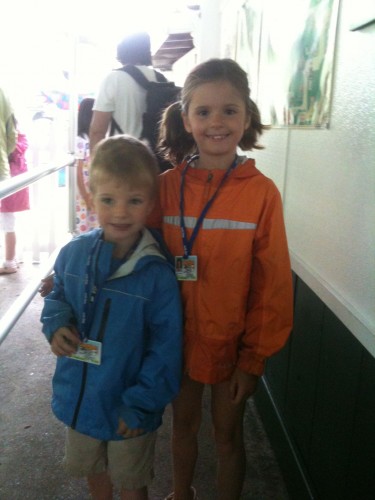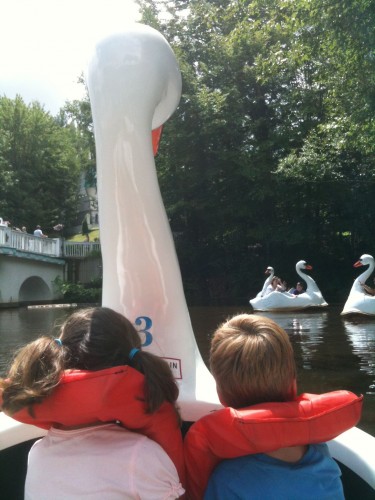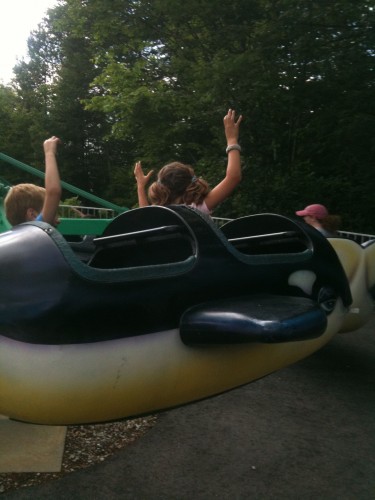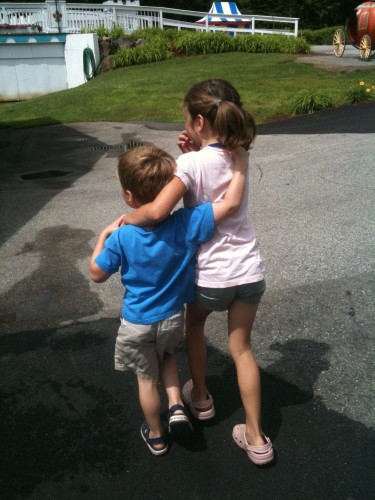There is no way for me to adequately convey my admiration, respect – hell, sheer hero-worship of – for Anne Lamott. This essay could have been crafted from my own thoughts. Admittedly, she took my fractured, ugly, disjointed thoughts and fashioned them into beautiful whole cloth. But what else is new.
She also cites something I’ve long believed, which is that we make time for that which is really important. If you can’t fit in it, that says something meaningful about how you value “it.” And one thing I seem to have no problem protecting time for in my life is time alone, in solitude, thinking, writing, reading.
I urge you to read this whole piece. It’s worth it.
********
I sometimes teach classes on writing, during which I tell my students every single thing I know about the craft and habit. This takes approximately 45 minutes. I begin with my core belief—and the foundation of almost all wisdom traditions—that there is nothing you can buy, achieve, own, or rent that can fill up that hunger inside for a sense of fulfillment and wonder. But the good news is that creative expression, whether that means writing, dancing, bird-watching, or cooking, can give a person almost everything that he or she has been searching for: enlivenment, peace, meaning, and the incalculable wealth of time spent quietly in beauty.
Then I bring up the bad news: You have to make time to do this.
This means you have to grasp that your manic forms of connectivity—cell phone, email, text, Twitter—steal most chances of lasting connection or amazement. That multitasking can argue a wasted life. That a close friendship is worth more than material success.
Needless to say, this is very distressing for my writing students. They start to explain that they have two kids at home, or five, a stable of horses or a hive of bees, and 40-hour workweeks. Or, on the other hand, sometimes they are climbing the walls with boredom, own nearly nothing, and are looking for work full-time, which is why they can’t make time now to pursue their hearts’ desires. They often add that as soon as they retire, or their last child moves out, or they move to the country, or to the city, or sell the horses, they will. They are absolutely sincere, and they are delusional.
I often remember the story from India of a beggar who sat outside a temple, begging for just enough every day to keep body and soul alive, until the temple elders convinced him to move across the street and sit under a tree. Years of begging and bare subsistence followed until he died. The temple elders decided to bury him beneath his cherished tree, where, after shoveling away a couple of feet of earth, they found a stash of gold coins that he had unknowingly sat on, all those hand-to-mouth years.
You already have the gold coins beneath you, of presence, creativity, intimacy, time for wonder, and nature, and life. Oh, yeah, you say? And where would those rascally coins be?
This is what I say: First of all, no one needs to watch the news every night, unless one is married to the anchor. Otherwise, you are mostly going to learn more than you need to know about where the local fires are, and how rainy it has been: so rainy! That is half an hour, a few days a week, I tell my students. You could commit to writing one page a night, which, over a year, is most of a book.
If they have to get up early for work and can’t stay up late, I ask them if they are willing NOT to do one thing every day, that otherwise they were going to try and cram into their schedule.
They may explain that they have to go to the gym four days a week or they get crazy, to which I reply that that’s fine—no one else really cares if anyone else finally starts to write or volunteers with marine mammals. But how can they not care and let life slip away? Can’t they give up the gym once a week and buy two hours’ worth of fresh, delectable moments? (Here they glance at my butt.)
Can they commit to meeting one close friend for two hours every week, in bookstores, to compare notes? Or at an Audubon sanctuary? Or a winery?
They look at me bitterly now—they don’t think I understand. But I do—I know how addictive busyness and mania are. But I ask them whether, if their children grow up to become adults who spend this one precious life in a spin of multitasking, stress, and achievement, and then work out four times a week, will they be pleased that their kids also pursued this kind of whirlwind life?
If not, if they want much more for their kids, lives well spent in hard work and savoring all that is lovely, why are they living this manic way?
I ask them, is there a eucalyptus grove at the end of their street, or a new exhibit at the art museum? An upcoming minus tide at the beach where the agates and tidepools are, or a great poet coming to the library soon? A pond where you can see so many turtles? A journal to fill?
If so, what manic or compulsive hours will they give up in trade for the equivalent time to write, or meander? Time is not free—that’s why it’s so precious and worth fighting for.
Will they give me one hour of housecleaning in exchange for the poetry reading? Or wash the car just one time a month, for the turtles? No? I understand. But at 80, will they be proud that they spent their lives keeping their houses cleaner than anyone else in the family did, except for mad Aunt Beth, who had the vapors? Or that they kept their car polished to a high sheen that made the neighbors quiver with jealousy? Or worked their fingers to the bone providing a high quality of life, but maybe accidentally forgot to be deeply and truly present for their kids, and now their grandchildren?
I think it’s going to hurt. What fills us is real, sweet, dopey, funny life.
I’ve heard it said that every day you need half an hour of quiet time for yourself, or your Self, unless you’re incredibly busy and stressed, in which case you need an hour. I promise you, it is there. Fight tooth and nail to find time, to make it. It is our true wealth, this moment, this hour, this day.




 Grace, Whit and I went to
Grace, Whit and I went to